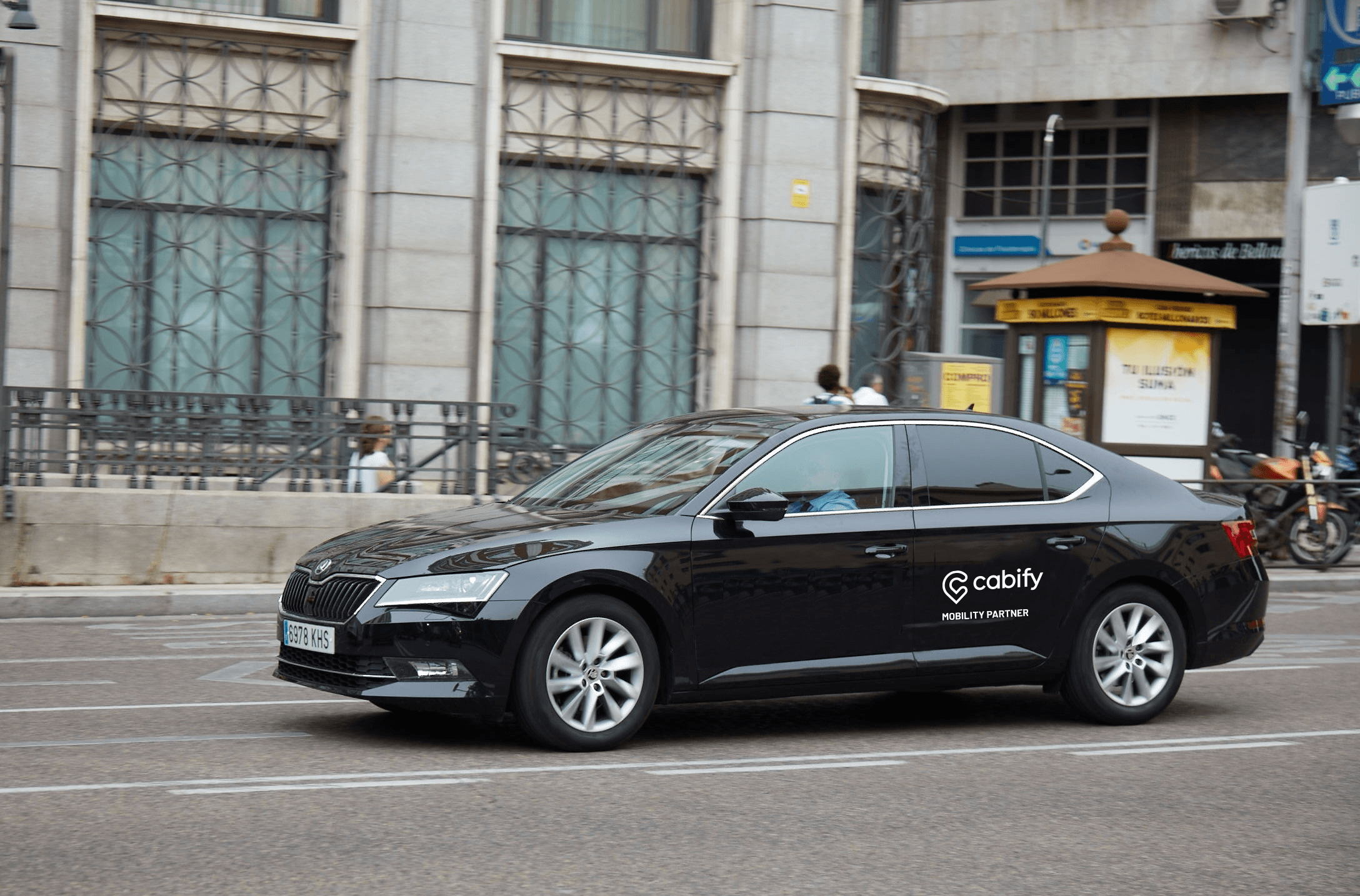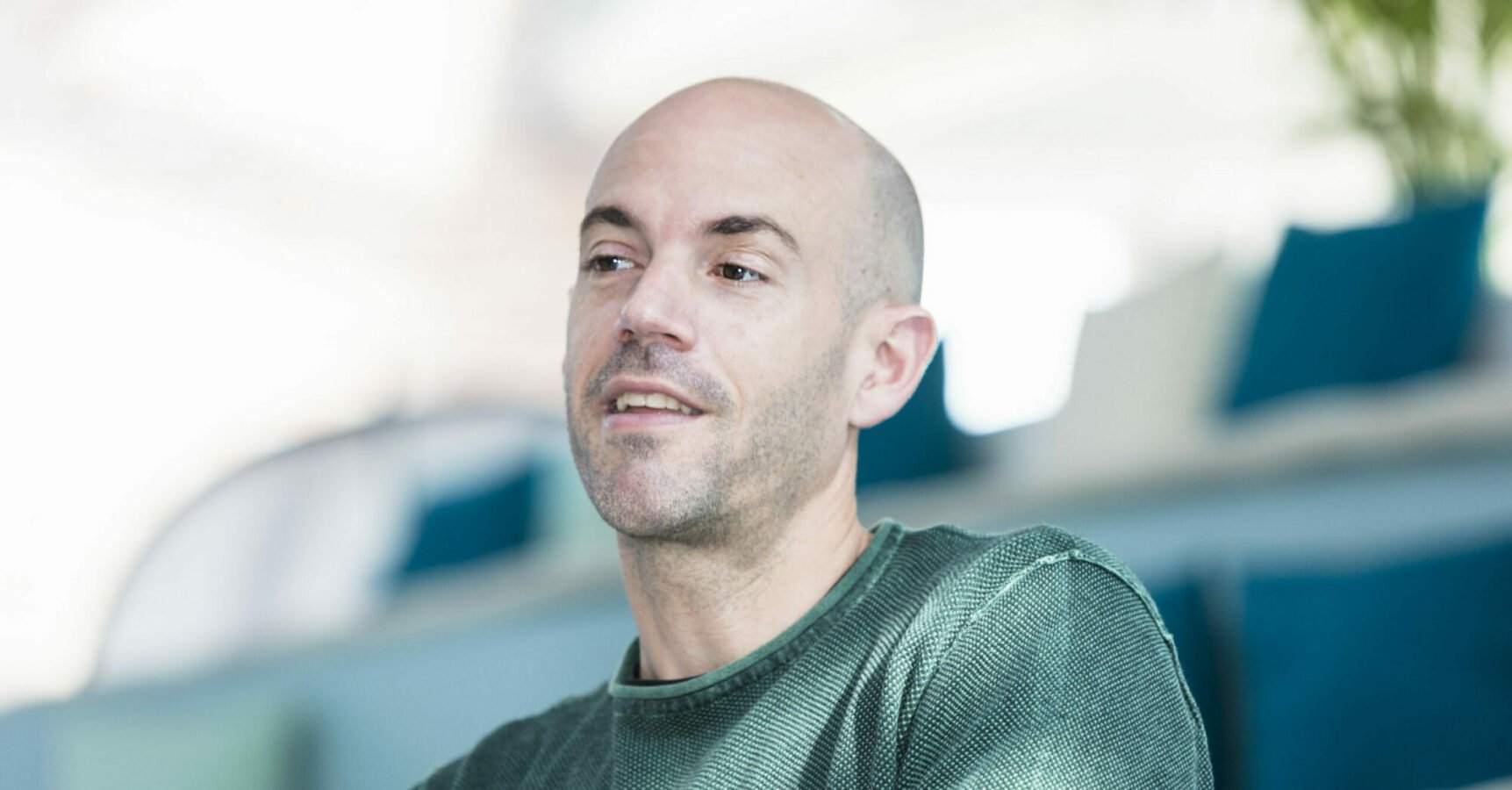Long one of Spain’s only two unicorns, ride-hailing startup Cabify is celebrating its 10th anniversary this month. After a rocky start in Madrid in 2011, the company launched operations in Mexico, Peru, and Chile just one year later, and is now also present in Colombia, Argentina, Ecuador and Uruguay.
Cabify says it now has 33 million registered users globally and more than 400,000 collaborating drivers. It also offers e-scooters and e-mopeds under the Movo brand name, long-term bike rental under Bive, the WiBle car-sharing service and a delivery service called Cabify Envíos.
Founder and CEO Juan de Antonio spoke to Tech.eu’s Crossing Borders series about how Spain's attitude 10 years ago forced them to expand abroad very quickly.
“That initial expansion was triggered by the lack of opportunities in our home market,” de Antonio says. “In Spain, the regulation didn’t allow for many options so we had to look for opportunities elsewhere.”
The Cabify chief has been vocal in his criticism of the Spanish government in the past, particularly in regards to Madrid’s tendency to safeguarding traditional industries. He told the Financial Times in 2018 that since Cabify started in Spain, “the Spanish state has felt like more of a hindrance than a help.”
“It’s strange that the country we have generally been made the least welcome by the government is our home, Spain,” de Antonio told the paper.
He told Tech.eu that five years ago he might even have said it was a mistake to launch first in Spain as opposed to going straight into Latin America, “but then the regulatory framework in Spain changed and we adapted to the local reality and we have a very successful operation in Spain.”
However, he feels that the Spanish government still needs to understand that the world is changing and that a medium-term plan is essential to ensure people are not left behind in the long term.
For one, the sheer amount of high-calibre engineering talent in Spain gives the country an edge — Cabify’s Spanish engineers are on par with any in the world, according to de Antonio.
“Spain has a huge opportunity to leverage this transformation… we as a country need to take advantage of that, it means setting the corporate rules that will allow innovation to happen in Spain as opposed to having innovation happen elsewhere...and it doesn't create any value for Spain or for Europe.”

EU needs to step up
Cabify is one of 35 members the new 'EU Unicorns Group', which launched in March with the goal to boost European tech innovation leadership, and help create more European ‘global champions.’ The group is calling for the EU to set up a €100bn sovereign tech fund.
“We’re not talking about giving tech startups a head start over other countries, we are talking about making Europe competitive with the rest of the world,” de Antonio says. “Things as simple as stock options, that are basic in the US or the UK, the way to provide this to your employees are different in every market in the EU; in Spain, it is a total nightmare.
“In terms of technology and innovation we are sometimes afraid that new companies will disrupt existing companies and that's going to create trouble down the road."
The ins and outs of market expansion

When considering new markets, the Cabify founder believes it is equally as important to know when to pull out as when to expand, especially if the economics are not working, or if the competitive dynamics are unsustainable, or you have other geographies where your resources could produce better returns. “You can always go back to a market when conditions change,” he adds.
Brazil is one such market for Cabify. The company announced in April this year that they were shuttering their operations in the South American country, where they had been since 2016, citing unprofitability and the fallout from the coronavirus pandemic.
“At some point in time we had to decide where to focus our efforts and had to recognise that it was a market that was far from reaching profitability,” he says. “We’ve done this with some other markets in the past and in some we’ve come back whenever the conditions have changed and hopefully we can do that in Brazil soon, but right now the market is not a priority for us.”
Spain’s other unicorn, the food-delivery app Glovo, completely exited Latin America in September 2020, selling off its operations to Delivery Hero.
Glovo co-founder and CEO Oscar Pierre told Tech.eu last month that in the food-delivery sector, being the market leader is hugely important, and it is vital to learn to “shut down very fast” in a market if they did not have a “clear path to number one.”
Also read: Know when to hold ’em, know when to fold ’em: Glovo CEO talks about their expansion hits and misses
For ride-hailing however, being the first to market is not that relevant for success, de Antonio says, noting that food delivery is more like a natural monopoly, while the mobility sector is more of an oligopoly.

“I would argue that what matters most is that you build value beyond the commodity so in the long term you originate and can differentiate,” he says, meaning for example, investment in carbon neutrality and paying taxes in all the countries where you operate.
Cabify has two different business models in Spain and Latin America. In Spain, cars for transporting customers need to have special licences, and these tend to be mostly owned by companies with fleets of cars. This means drivers are employed on proper work contracts by the companies.
In LatAm, Cabify is still using the gig-economy model where the drivers are self-employed with their own cars. De Antonio says they are planning to export the Spanish model to Latin American markets, as it is working well in Spain, but they don't have a date for it as yet.
Juan de Antonio’s expansion tips
> Balance the resources you have with how many mistakes you can allow yourself.
He says that striking a balance between spreading yourself too thin and building a strong playbook by market is so tough that many startups either expand too slowly or too fast.
“We spread ourselves too thin for a number of years, until early 2014, when for the first time in our history we got a significant amount of money as Series A and it allowed us to have execution that was not biased by running out of cash in a matter of days," he says. "The business grew very rapidly and in a sustainable manner and that allowed us to expand to different markets.”
> Latin America is not necessarily the obvious expansion choice for Spanish startups.
“I would argue that it is easier to expand within Europe than to go from Spain to Latin America—the cities are very different for starters,” he says, adding that there are so many differences and nuances in the language that it can actually be a disadvantage.



Would you like to write the first comment?
Login to post comments